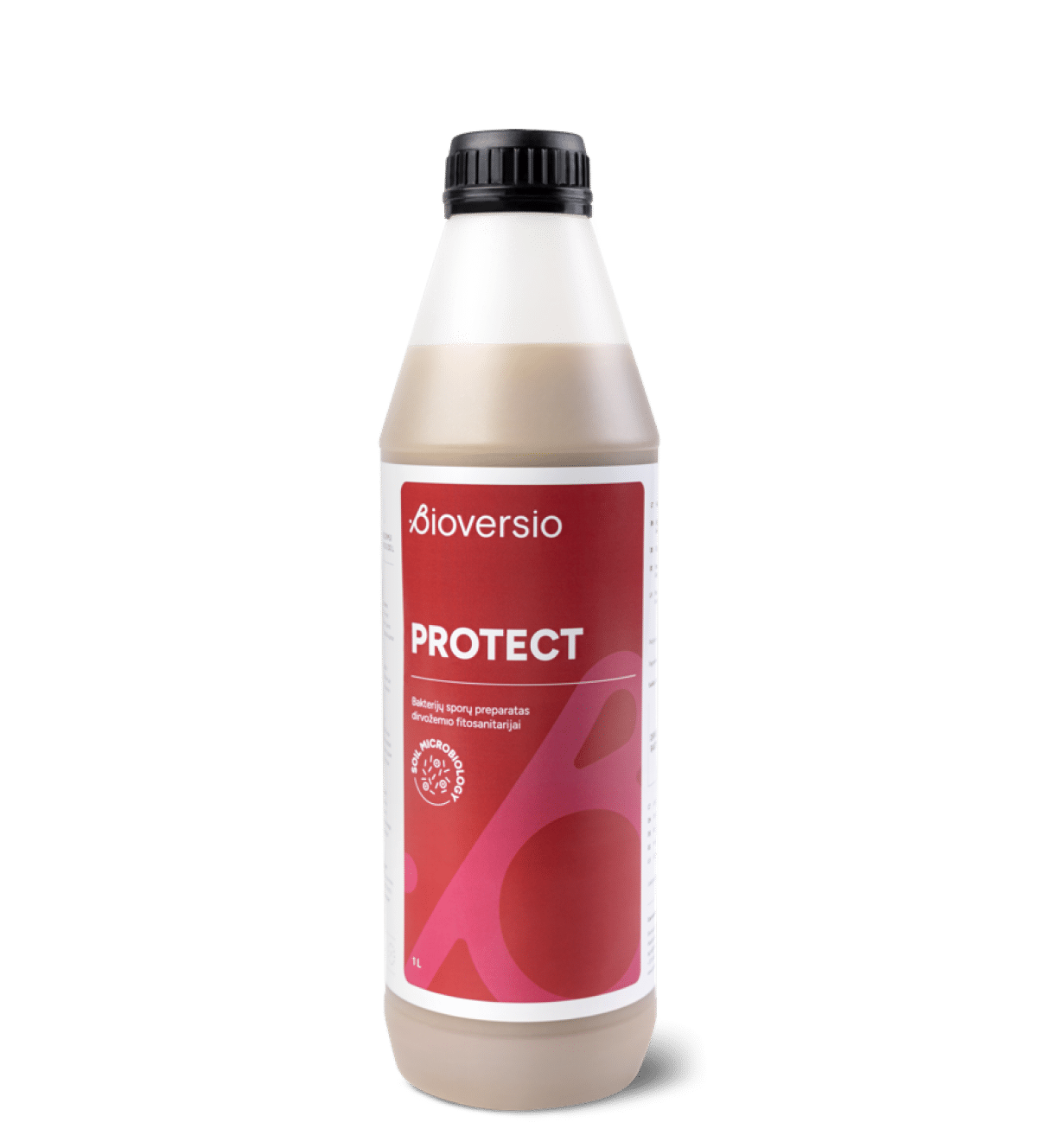ORGANIC
For soil improvement
Soil-borne diseases are the most dangerous because they are invisible to the eye. Soil-borne pathogens migrate near the roots of plants and prevent them from performing their primary function – to take care of nutrition. This leads to a loss of crop productivity and yield quality. Therefore, it is important that there are enough bacteria in the soil to perform a phytosanitary function. PROTECT is bacteria against invisible pathogens.
PROTECT bacteria create a competitive environment for pathogens by preventing them from reaching the roots and then the plants themselves, thus preventing the spread of pathogens.
CFU/ml – colony forming unit per millilitre
Here you will find all relevant documents related to the product. Download them quick and easy.
